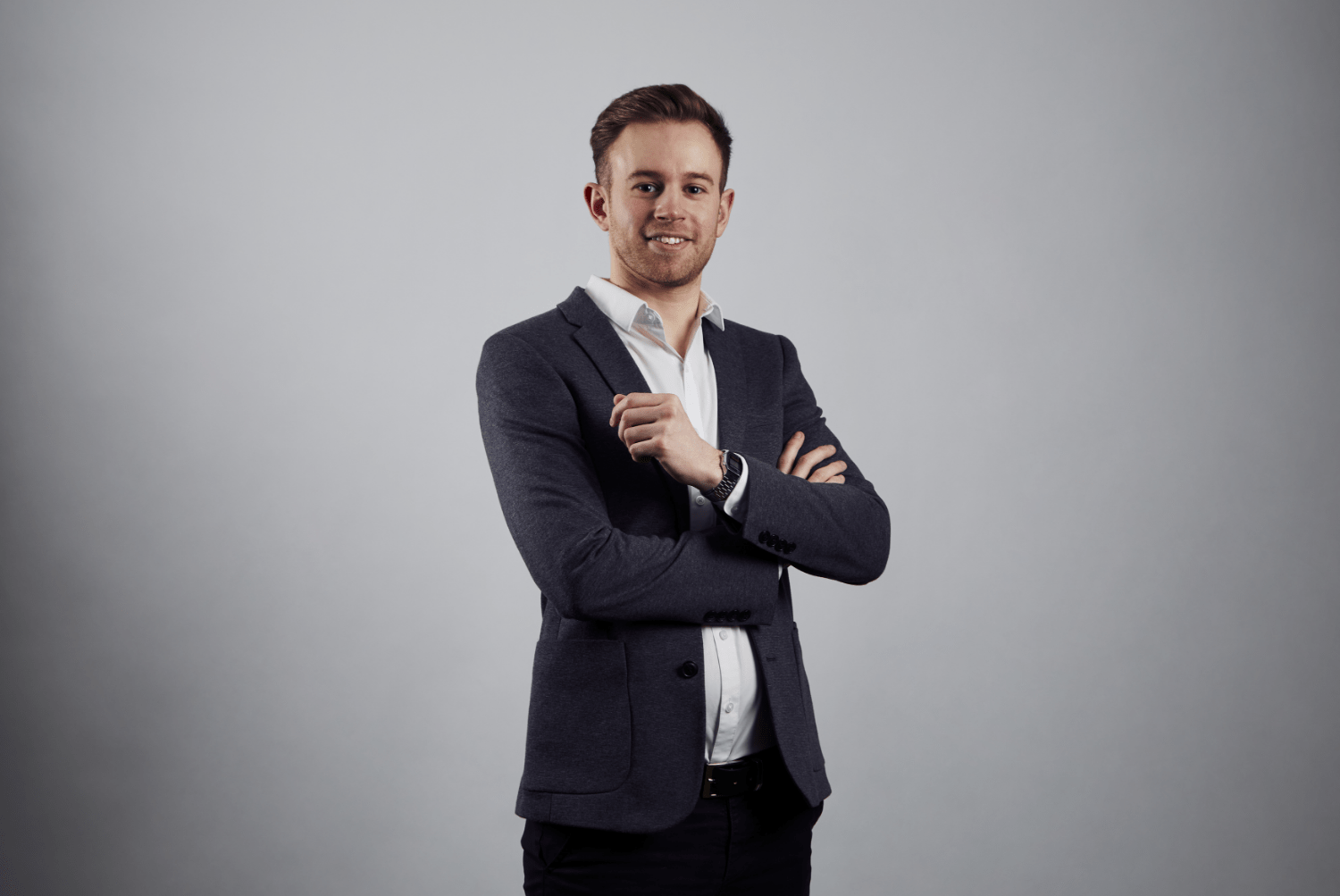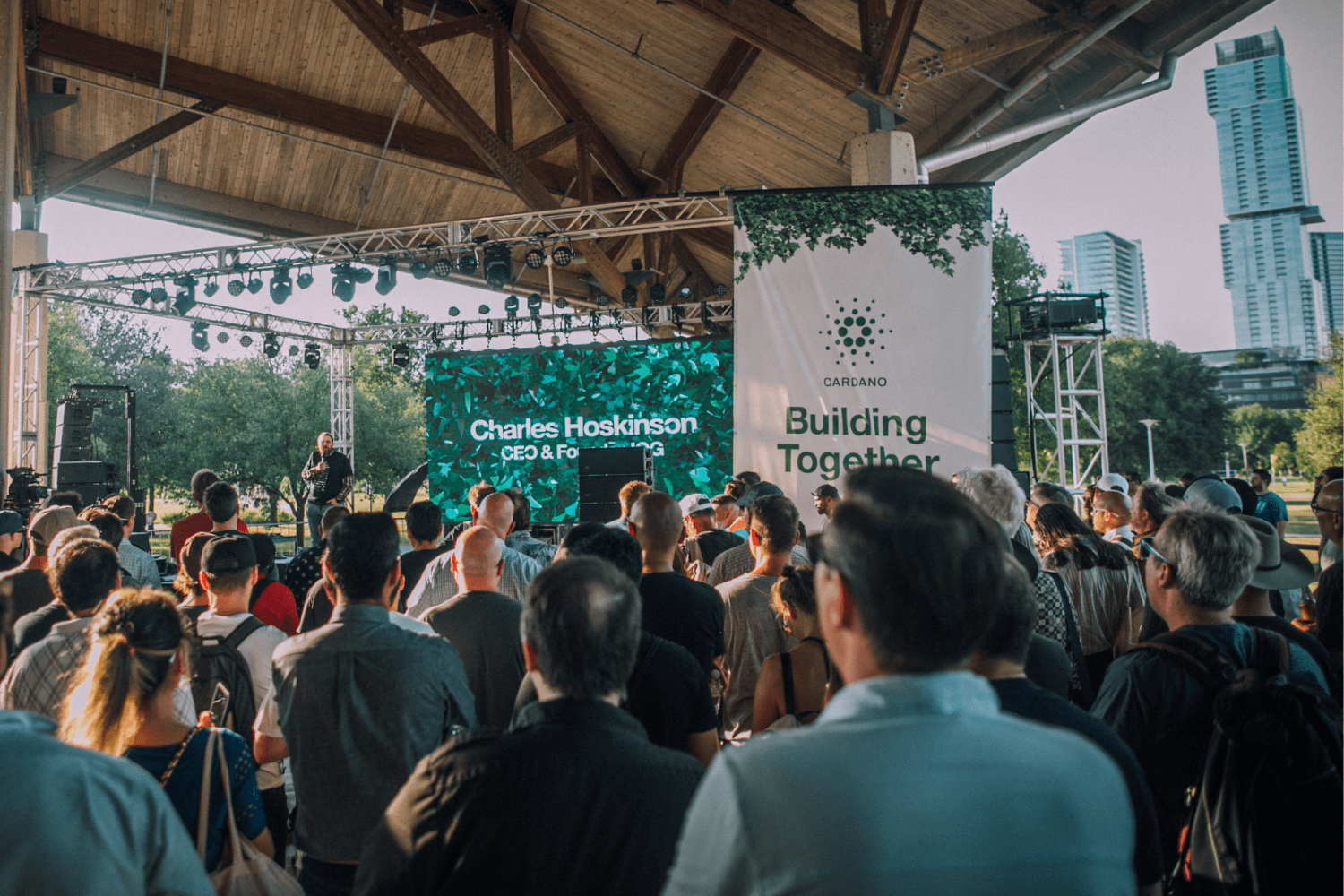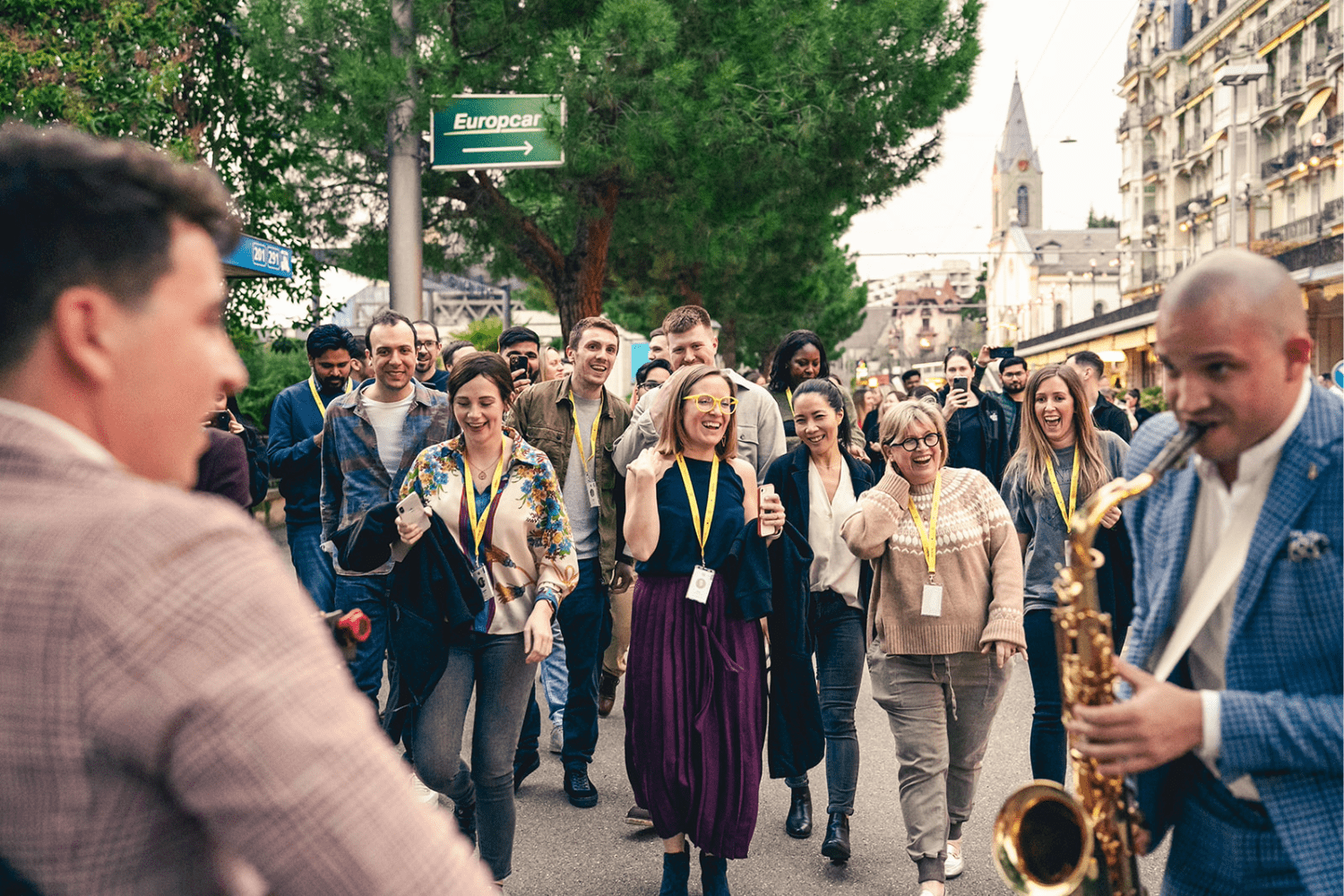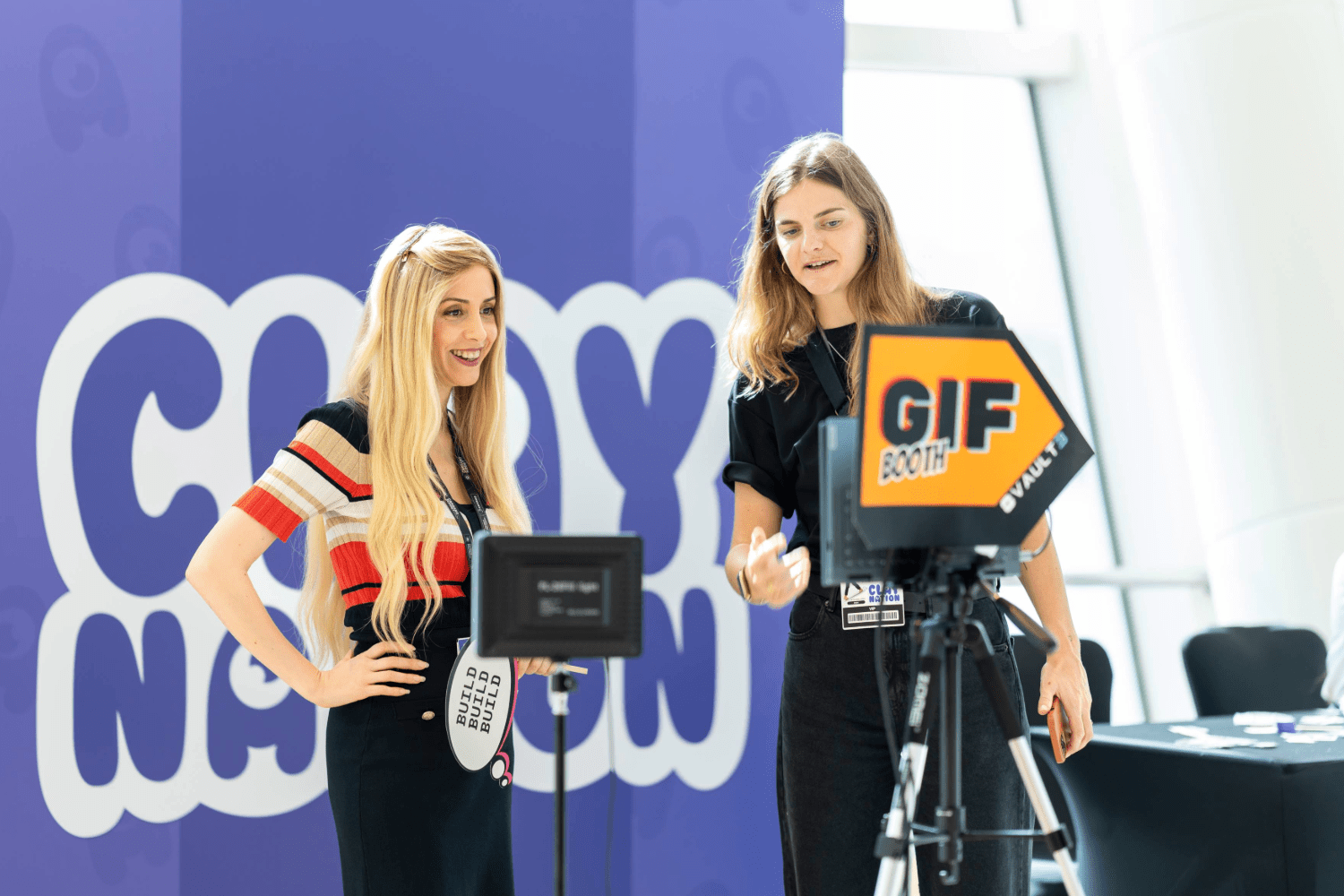 Back to News Room
Back to News Room
News

Max Collishaw asks whether AI can preserve creative talent, rather than threaten it
As an organisation that fuses creativity and analytical thinking, we have already begun to experiment with the capabilities of AI and how it can enhance our offering to clients, using it to facilitate the creativity of our teams, rather than replace them.
Head of Digital, Max Collishaw has been excited to test the capabilities of AI, and how it can accelerate and facilitate the event creation process used across his digital team and throughout the business.
We spoke with Max to find out what other business leaders can learn from AI, what it means to creatively driven companies, and ultimately, why it will never truly replace the service that we create, or the value of human creativity.
Any business leader should be sensitive to the concerns of those affected by the growth of AI. With the launch of generative AI tools, many are questioning the future of creative skill sets, when it’s becoming easier, quicker and often cheaper to ask a computer to generate creative content. As event professionals, we can clearly see how the growth of such tools could be perceived as threatening to creative jobs, with many expressing concern that even some positions in the events industry could be under threat too.
At First Event, we are a future-facing company, and that’s what’s enabled us to grow so well over the last few years. It’s this approach to learning that makes exploring and harnessing the power of AI feel natural to us, rather than a threat. Whilst the adoption of AI is still in its infancy, we’re going out and discovering new ways to use emerging tools to improve our service. We’re choosing to evolve before we are involuntarily left behind.
As a department of digital experts, it’s our responsibility to our clients to explore new technologies and use them to enhance their events and create a unique experience for their attendees. We investigate and report back to our clients in a way that’s relevant to them, their activity, and their business goals. AI has brought us and our clients so many benefits that we’re forced to wonder if any agency that isn’t even tempted to look at where AI could add value and remove resources is failing their clients.
So far, we’ve seen AI vastly improve the quality of the delegate experience across our events. By using AI we can streamline the personalisation of our interactions with attendees, making each individual’s experience more tailored, creating stronger relationships between our clients and their target audiences. We can also use AI to get a richer understanding of the metrics behind our events, such as gauging physical engagement by using technology that reads the facial expressions of our attendees, which allows us to both respond in the moment to meet attendee needs and reflect on how to improve future events.
With one of our clients in particular, we’ve developed a chatbot that pulls information from across the event website, creating quick and relevant answers to attendee questions, which dramatically lowers the amount of email enquiries we receive from delegates too. This piece of technology means that rather than allocating one team member to sitting and monitoring a chat box around the clock, we were able to allocate this team member to another area of the event experience.
Examples of reallocation of resources like this allow us to cut our client costs too, without compromising on the quality of events that we deliver. We still require an experienced human to make those kinds of decisions, using the wider context of the client account to decide where the budget needs spending. People pay us for our time, and AI has simply given us more flexibility over how we use that time. It has called into question what we do, why we do it, and has created an opportunity for a complete rehaul of how we work, and how we can do things better, all with the end goal of creating incredible experiences for our clients, but with a lower cost than before.
Regarding analytics, AI presents our data back to us in a way that’s easy for us to access and digest, allowing us to spend our time delving even deeper into trends and data. Take collecting attendee feedback, for example. Not many people find the prospect of filling out a feedback form engaging, but with AI we can make attendees feel like they’re interacting with a human, using tools to capture even more insights than before and create suggestions that still need evaluating and implementing by a member of our team.
The professionals on our First Event team do what they do because they have creative talents and they love working with real people. This is something that will never change, and AI will allow us to put even more emphasis on creativity and human relationships throughout our service. We see AI as the opposite of a threat to creative work; we see it as a force that will enshrine the value of the human element of creativity, whilst allowing us to work smarter and achieve better results for our clients. Right from the ideation and strategy creation process, all the way through to collecting feedback from event attendees, we’ve found that AI has streamlined what we do, allowing us to pay more attention and focus greater resources on the things that we do that truly matter to our clients.
The First Event service is defined by that friendly, unique and personal element, which can never be truly replaced. Whilst there will be some organisations across the events industry who have already for-gone these elements of their service in the name of efficiency, for us, this human element is a USP that is not only going to remain, it is going to become more important than ever before.
Those who are seeing AI as an opportunity to downsize their creative teams will end up on the wrong side of this emerging age of AI. Whilst AI does have creative capabilities, the main focus of its power should be applied to removing the barriers to truly innovative creative thinking. The sooner we can utilise these tools to reduce admin, streamline processes and free up the time and mental bandwidth of creative people, the sooner we can unleash the real talent of our teams.
Like AI, even the best tools need to be used by experts in order to get incredible results. You couldn’t hand a top-of-the-range chisel and a finest cut of marble to a sculpting novice, and expect them to carve a masterpiece. In the same way, we use our events expertise to ask AI the right questions, craft the right prompts, interpret what it generates, and ultimately bring it to life.
It’s our skill set that makes us able to determine what’s relevant to our clients, and how to craft the perfect conditions that foster meaningful relationships with their attendees. Ultimately, events are in-person experiences designed for people. For something that focuses so closely on responding to human needs, interests and values, AI will never be able to replicate the human element of events.
Want to harness the power of AI and other event trends to create an elevated experience for your attendees, and streamlined event execution for your team?
Get in touch with the First Event team!




